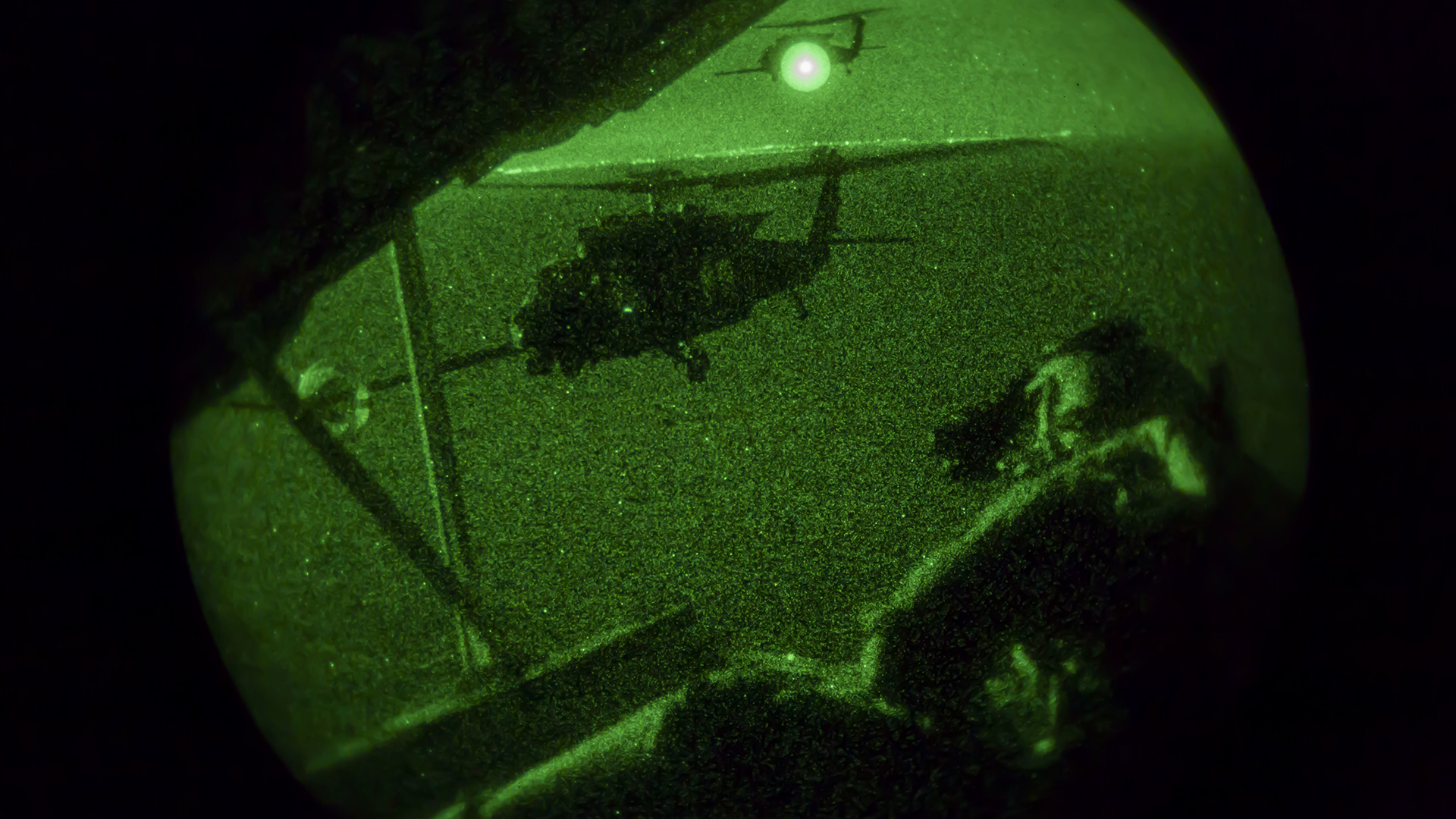

U.S. troops killed senior ISIS leader Abd-al-Hadi Mahmud al-Haji Ali during a helicopter raid on Monday in northern Syria, according to Central Command, or CENTCOM.
Earlier on Monday, CENTCOM had announced that Monday’s raid had resulted in the “probable death” of the ISIS leader, described as an operational planner in charge of planning attacks in the Middle East and Europe. Two other armed people were killed during the operation.
CENTCOM subsequently confirmed that al-Haji Ali had been killed in Monday’s raid.
“This operation was launched after intelligence revealed an ISIS plot to kidnap officials abroad as leverage for ISIS initiatives,” a CENTCOM news release says.
No U.S. troops or civilians on the ground were killed or wounded, and no U.S. helicopters were damaged during the raid, according to CENTCOM.
Subscribe to Task & Purpose Today. Get the latest military news, entertainment, and gear in your inbox daily.
“Though degraded, ISIS remains able to conduct operations within the region with a desire to strike beyond the Middle East,” Army Gen. Michael “Erik” Kurilla, CENTCOM commander, said in a statement. “We will continue the relentless campaign against ISIS.”
Monday’s raid is the third publicly announced U.S. military operation this month against ISIS, which has waged an insurgency in Syria and Iraq since losing its last remaining territory in 2019.
On April 8, U.S. troops captured Hudayfah al Yemeni – whom CENTCOM described as “an ISIS attack facilitator – and two of his associates in eastern Syria. Four days earlier, the U.S. military launched a “unilateral strike” on April 4 that killed ISIS Khalid ‘Aydd Ahmad al-Jabouri in Syria.
About 900 U.S. troops are deployed to Syria to keep ISIS from re-emerging as a major threat, but they also frequently find themselves under attack by Iranian-backed forces as part of a proxy war between the United States and Iran.
Iran and its proxy forces have launched more than 80 attacks against U.S. troops in Iraq and Syria since President Joe Biden took office, Defense Secretary Lloyd Austin told lawmakers last month.
On March 23 a drone that U.S. military officials determined was “of Iranian origin” attacked a coalition base in Syria, killing an American contractor and wounding five U.S. service members. In response to the attack, the U.S. military launched airstrikes later that day against “facilities used by groups affiliated with Iran’s Islamic Revolutionary Guards Corps,” Austin said in a statement at the time.
The following day, U.S. troops in Syria were attacked again and one American service member was wounded, but the Biden administration decided not to launch further punitive strikes, the New York Times first reported.
“Iran is deeply committed to trying to entrench itself – economically, politically, militarily socioculturaly – as deep into Syria as it possibly can, because it wants to stay there in the long run,” Nichols Carl, the Middle East Portfolio Manager at the American Enterprise Institute think tank in Washington, D.C., previously told Task & Purpose.
UPDATE: 04/17/2023; this story was updated on April 17 after U.S. Central Command confirmed that ISIS leader Abd-al-Hadi Mahmud al-Haji Ali had been killed in Monday’s raid in Syria.
The latest on Task & Purpose
- How much of a threat does Russia’s Pacific fleet pose to the US?
- 5th Security Force Assistance Brigade commander suspended
- Former Afghan interpreter graduates from boot camp to become a Marine
- Russia jams US GPS-guided weapons given to Ukraine, leaked info shows
- Taiwanese Air Force pilot’s ‘Winnie the Pooh patch’ causes international controversy